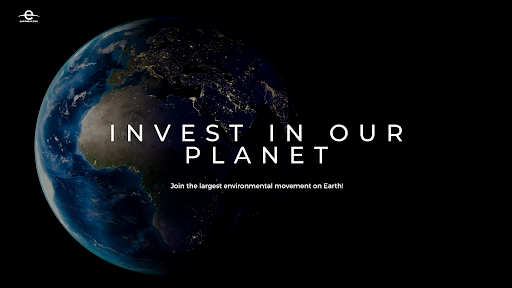Earth Day and every day: five ways your Sandwell business can invest in our planet
21st April 2023
‘Invest in our Planet’.
Earth Day 2023 falls on Saturday 22 April. First held in 1970, this is an annual global event organised by EARTHDAY.ORG to raise awareness of the need for environmental protection.
The theme this year is ‘Invest in our Planet’, the same as last year. It explores the link between business and the environment.
Good for business
Investing in our planet may be good for business, as well as for the world. Studies have shown a correlation between sustainable business practices, share prices and business performance. Companies that develop strong environmental social governance (ESG) standards often have better profitability, happier employees and more resilient stock performance [see this report by Axioma].
One ways in which your Sandwell business can invest in our planet is through responsible procurement. Namely: identifying and reducing the environmental impacts of your supply chain.
We have five suggestions of how your company can buy responsibly to reduce your environmental footprint. And not just on Earth Day but every day.
1. Buying locally (local procurement)
Local procurement is the practice of using suppliers that are local to your business or project. Buying locally boosts the local economy, reduces your carbon footprint and can often help to create and sustain jobs in our region.
By keeping business local, your project may well enjoy greater support from the community and deliver social value too. It can also reduce costs in storage and transporting materials, especially while fuel prices remain high.
There’s another benefit, aside from the cost and environmental aspects. Working with suppliers who are local to your project – who have knowledge of your local area and industry – may help you reduce the time and investment you need to source what is required.
The procurement website finditintheblackcountry.com can help you connect with local suppliers – and win more work locally, too.
The Business Growth Team at Sandwell Council may also be able to put you in touch with suitable local businesses. Find out how to contact them.
2. Seeking out low-impact materials
Low-impact materials means those that have come from a sustainably managed source or been made themselves using locally sourced materials.
Deeming a material ‘low impact’ must take into account all the resources needed to produce the material. This can include water, energy and land, plus the carbon footprint and impact on local communities that result from obtaining the material.
To find out what materials are sustainable and low impact, check out the various indexes and assessments available online, such as:
The Higg Materials Sustainability Index (MSI)
This compares the environmental impact of different materials so design and development teams can make more sustainable choices during materials selection.
Life Cycle Assessments (LCAs)
An LCA measures the environmental impacts of a product or service. It is an assessment that shows what raw materials and energy will be taken from the environment in its creation and what impact the product or service then has on the environment during its use. Here’s a beginner’s guide to LCAs.
Look for suppliers who cite certifications from recognised bodies (such as the Higgs MSI) and who back up their environmental and/or social claims with data.
Waste, recycled and reclaimed materials are generally low impact. Making paper from pulped recycled paper, for example, uses 40 per cent less energy than making it from virgin wood fibres [source: Friends of the Earth]. So buying recycled paper for office use would be a considerate thing to do.
 3. Supporting the circular economy
3. Supporting the circular economy
You could also look into investing in the circular economy. The West Midlands Combined Authority in its ‘Kickstarting the West Midlands’ Circular Economy’ report defines this as “an alternative to the current linear economy – one in which we make, use and dispose of products. It designs out waste and pollution by reusing and repurposing products and materials that would normally be discarded”.
An example of a local business contributing to the circular economy is Paint360, which began life in Cradley Heath. This innovative company receives waste paint from household waste recycling centres, contractors and retailers, then re-engineers it back into emulsion paints that have a minimum of 50 per cent recycled content.
This award-winning paint is sold directly to consumers and through building merchants. It is widely used in social housing, facility management and construction projects.
You can also consult the government-approved list of waste buyers and contact one locally to see whether any of your own business waste can be sold for recycling.
4. Choosing Fairtrade and B Corp suppliers
A product with the Fairtrade mark means producers and businesses have been independently certified in meeting internationally agreed standards.
Fairtrade ensures better prices, decent working conditions and a fairer deal for farmers and workers in developing countries.
There are over 6,000 Fairtrade products. To find stockists of Fairtrade products use the National Fairtrade Purchasing Guide. The list includes many suppliers that can provide Fairtrade certified drinks, food and non-food items such as cotton.
You could also consider using B Corp certified suppliers. B Corp Certification is a sign that a business is meeting the highest standards of social and environmental performance. This can include everything from employee benefits and charitable giving to supply chain practices and input materials.
You can search for B Corp certified products and services on the B Lab website.
5. Investing in energy-saving practices and technology
Investing in energy-saving technology or practices may cost a little more initially but can save energy and lower your business costs in the long term. Energy-saving practices include installing insulation and solar panels, or investing in appliances that use less energy.
Choosing sustainable web hosting can reduce your website’s carbon emissions. Some hosting companies are more proactive than others. For example – in using renewable energy sources, technology that improves energy efficiency and energy-saving equipment, and carbon offsetting.
Shop around and don’t be afraid to ask questions. There are great innovations happening – check out this story from Sustainability Magazine which details how the energy generated from a data centre in Exmouth is being harnessed to heat a local public swimming pool.
Holding online meetings and events means less travel – lowering your company’s carbon footprint while also saving money. You could also help your staff invest in bikes. The government-backed Bike2Work scheme, for example, provides a benefit to your employees and has a tax incentive for your business too.
Another way to lower your company’s carbon footprint through responsible buying is to invest in green office equipment – although it’s arguably wiser and more environmentally friendly to use existing furniture until the end of its serviceable life. You could change your premises lighting to LED lighting and be sure to turn off the lights at the end of each day.
It’s not just a day, it’s a movement
Earth Day is about much more than one day of the year. It’s a movement that all businesses are invited to join to help protect our planet.
Governments, businesses and citizens need to unite and hold themselves accountable. Any small steps your Sandwell business can take towards the goal of sustainability will make a difference in this global mission.
You can also be part of the change and support the work of the Earth Day environmental movement by becoming a member. Visit the Earth Day website to find out more.
For support to make your Sandwell business greener and more sustainable, contact the Climate Change team at Sandwell Council by emailing Climate_Change@sandwell.gov.uk.
#InvestInOurPlanet
Links in this article are just suggestions and not endorsements from the Sandwell Business Ambassadors.

